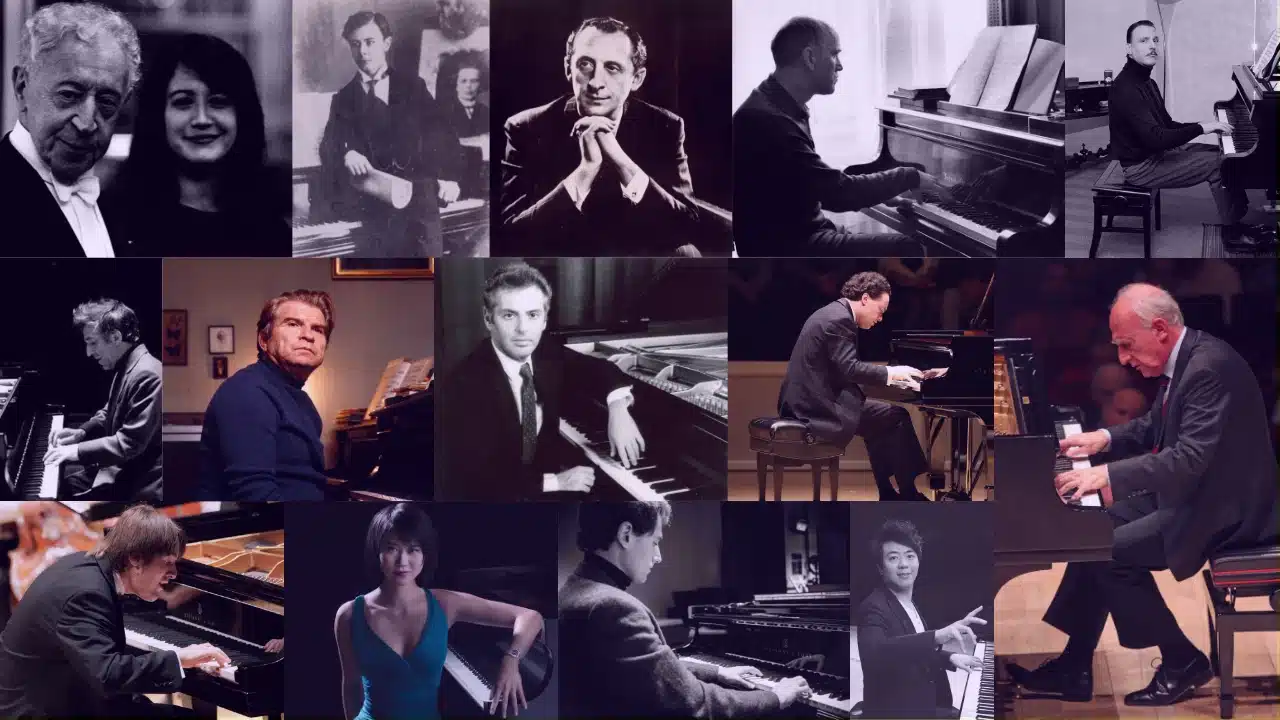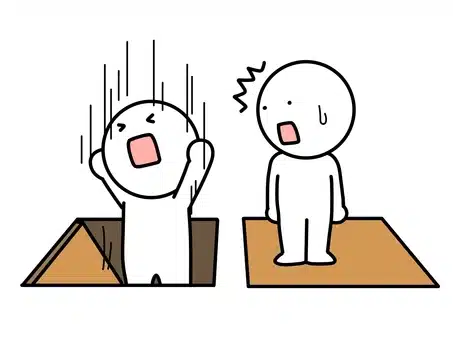How to Avoid Getting Trapped in Your Own Web?
It is much easier then you think to avoid these piano beginner pitfalls!
In this VIDEO POST, I’ll reveal 5 self-created pitfalls that beginners and even intermediate piano students suffer from. Yet these pitfalls may easily be prevented without it costing you more time to practice. Just add a few ingredients that will boost your piano progress 10x.
Pitfall 1 - Not finishing what you started
Not finishing a piece, meaning; bringing it to a level that gives satisfaction and brings your piano playing to the next level - is one of the piano beginner pitfalls that must be addressed. Only learning the notes of a piece does not give the same level of satisfaction that playing a piece of music should give. Because it is about expressing feelings and ideas behind the music. This requires a certain level of piano technique that takes time to master.
Finishing a piece means looking for the right sound, expressing dynamic markings like forte, mezzo forte, mezzo piano, piano, pianissimo, fortissimo, and crescendos and diminuendos. See that notes are played ‘legato’ or ‘staccato’ when it is meant to be. Learn how to make a beautiful phrasing instead of playing from note to note or ending a phrase with a loud note or sudden stop, when actually it would be nicer to make a slight diminuendo or ritenuto at the end.
Learning piano playing is not just about the fingers that press keys; it is also about arm movements that enhance the fingers to play more dynamically, fluently, and efficiently with less tension. There is much more to pay attention to. Each stage in your piano level has its main focus points. You don’t have to make it perfect since that doesn’t exist. But you need to get something out of each new piece learned. It should bring you to a little bit of a higher level.
Everything you learn in one piece of music you’ll take to the next, and it will be easier to bring the next piece to a finish and the next. Step by step, we will take a piece with a new challenge so we keep growing. So avoid this piano beginner mistake. Read also THIS POST about the fastest way to program the notes in your fingers
Pitfall 2 - Forget about Piano Technique
You are not spending time on technique away from the repertoire pieces. Well, here we have the second of piano beginner pitfalls to get trapped in. When a child learns to talk, it first learns sounds; gibberish talk. Yet it is so important to learn the sounds by themselves before a child can start to try words. First, partial words, and then, after lots of practice, complete words. Only then does it start to attempt short sentences.
The same is true for piano playing. First, we need to make the fingers ready to play a certain note passage that is equal and smooth. We can practice our fingers in exercises that are highly effective for the best and quickest results; without that, we need to spoil a piece of music because we took it outside the music. We can do the same to learn the arm movements used in piano playing. This results in faster learning of new pieces; we spent time on technique in the pieces, of course, that is inherent to the piece, but because we already have specific skills from exercises, this process inside the piece goes faster.
Adding technique into your practice regime seems like more practicing time, but it doesn’t have to be. Let’s say you practice very little, a bare minimum of 30 minutes daily. Then, spending 10 minutes on technique will result in a more effective left over 20 minutes that you would spend on learning your piece.
The reason for this is simple: Ten minutes of technical workouts will bring your fingers in a better form. And fingers in good shape will absorb much faster when you try to learn them play something. Warmed-up fingers will react better and help you remember more of what you tried to learn. So 20 minutes after warming up gives you double or triple the results.
So, it certainly is a good idea to add exercises to your practice time. If you did 45 to 60 minutes of exercises during, let’s say, 2 or 3 hours of practice, it would 10x your results. The effect is not linear, but exponential. So a very important piano beginner mistake to avoid.
Pitfall 3 - Not Giving Attention To Rhythm
Not developing rhythm the right way is the third piano beginner pitfall to avoid with all your mindfulness. Our musical clock is the core of any music. Without rhythm, music becomes formless and meaningless. Rhythm without pitch or harmony is still music and meaningful, but sounds, harmonies without rhythm are, just empty formless sounds without any meaning. And music with a badly performed rhythm just sounds amateurish and of poor quality.
Even a non-musical audience will feel disturbed when the rhythm is off. Over the years, I have developed an inner metronome that ensures that my rhythms are always correct and effective. When practicing, and that is true, especially for beginners, we should make it a habit to count the rhythm and make sure each note sounds ‘in time.’ The best way to learn musical time is to feel the smallest note value in a musical piece or section as an underlying ‘vibration’ on which each note falls into place.
The next step is to learn the art of Rubato, which means stealing time. Here, we learn to stretch or squeeze the underlying vibration of the smallest note value in a natural way to give a certain interpretation of the rhythm that the metronome sometimes can’t catch.
A common piano beginner mistake is to take liberties in the wrong places and with bad taste. assign it to "musical liberties or Rubato playing". This is because a lack of rhythmical development and a lack of knowledge of different music styles.
Pitfall 4 - Not Practicing Your Musical Ear
Not spending time on developing a musical ear is the 4th of piano beginner pitfalls. The most natural way to start this is by singing the melodic line in your learning pieces. The second step is to learn the intervals, sing them first, and later try to recognize the distances between two notes by ear.
An excellent way to practice this is to try playing melodies that you hear in music that is in your playlist. Hopefully, you will have a good playlist because listening to lots of piano music will help you develop your own playing skills.
The fastest way to get from A to B is by modeling others that have been there. Listening to piano music is a great way to understand what a good performance sounds like. Try to work towards that. It’ll take years, but these years will go in the right direction. Also, try to listen if you can recognize the same piece played by different pianists.
The key here is to listen to great pianists since each great pianist has his or her very own piano sound. As mediocre players will sound all the same, different in their mistakes perhaps, but still lacking individuality in playing and piano sound.
A piano beginner mistake is to listen to any recording they can easily find and listening to badly performed piano playing. This is a pity, because you don't learn what good piano playing sounds like. On the picture below you see small selection of pianists that I recommend to listen to. Far from complete, but a good start!

Great Pianists collection: Rubinstein, Argerich, Hofmann, Horowitz, Richter, Michelangeli, Ashkenazy, Gilels, Barenboim, Kissin, Pollini, Trifonov, Yuja Wang, Boris Giltburg, Lang Lang
Pitfall 5 - Not Learning Any Music Theory
Learning music without music theory is like learning a new language without knowing its alphabet and grammar. Can you imagine how it is to learn Russian without first learning the Cyrillic alphabet or learning Japanese without even spending time on their fantastic phonetic syllabary system called Kana? Not even speaking about grammar here would be a very difficult task, and it will make your path to using these languages long and strenuous. Therefore not taking this serious is the fifth of piano beginner pitfalls.
In music, the same is true. Learning music notation is the very basis of learning the alphabet. Learning chords is like understanding the relationships between different types of words. Understanding rhythm is understanding how letters form words; like this, note groups form phrases that happen in time, rhythm.
Spend time learning to read sheet music. Each new piece you learn by reading, instead of just watching some YouTube video pressing the keys, each piece will improve your reading skills. After you get comfortable with reading, you can take some too-easy pieces and play these from the score without preparation. This will help your sightreading skills. Sightreading will speed up the first stage of learning a new piece: reading the notes and putting them into your finger memory.
Understanding notation of expression markings, Italian tempo, and character markings. What do the different expressions mean in music notation, like slurs, marcato signs, accents, etc? What are the different musical forms, and how do we recognize them in the way a musical piece is structured?
Understanding music theory allows you to see the relationship of otherwise individual notes in the exact musical phrase and inside the musical structure of a piece. How are the chords connected? Why do some chord progressions sound good while other progressions simply don’t work at all?
Learn how chords are built and try to see chords in the music you play. Seeing groups of notes as chords is very powerful. Read some books on music theory or watch some of the many YouTube videos on the topic. And then try to recognize what you have learned in the pieces that you play.
This will enhance your ability to learn a piece not just faster, but it is also necessary in order to understand and feel the music better. Like in all art, feelings are cultivated by expanding our knowledge and experience. Taste isn’t genetically decided, but is cultivated by education. However, we are born with a certain temperament and should direct our temperament with a good education.
Conclusion
Without these 5 elements you'll never accomplish your dream of playing the music you love the way you dream of playing it. So don't let these become your piano beginner pitfalls.
All of these pitfalls can be prevented without spending more time practicing by just adding these into your practicing that you are doing already. Do you have extra time, great! But don't let time be an excuse not to learn the necessary skills. And maybe it feels like you are spending less time on your piece, soon you'll learn that that time will get 10X in results as it did before spending some time on these five elements.
Good luck with it and drop questions in the comments below!
Click play to watch the video tutorial:

